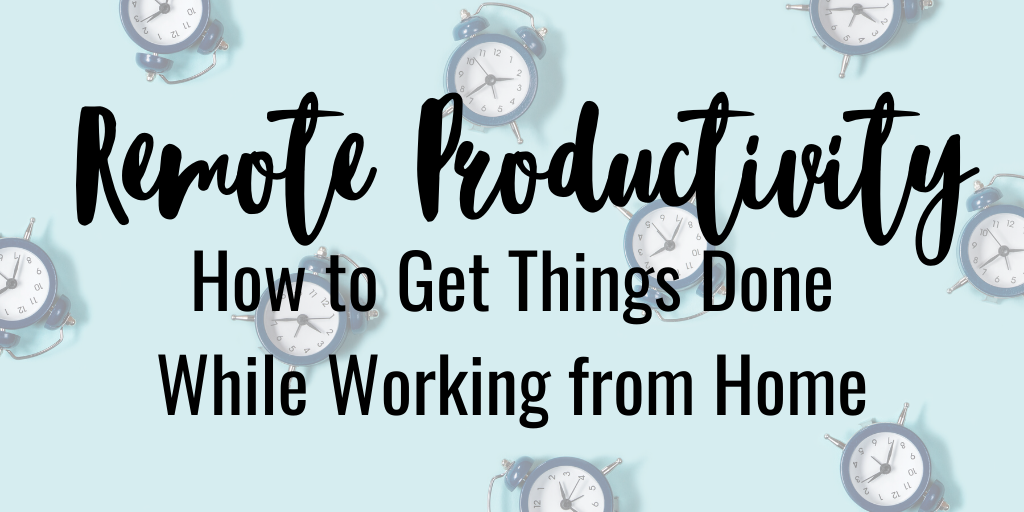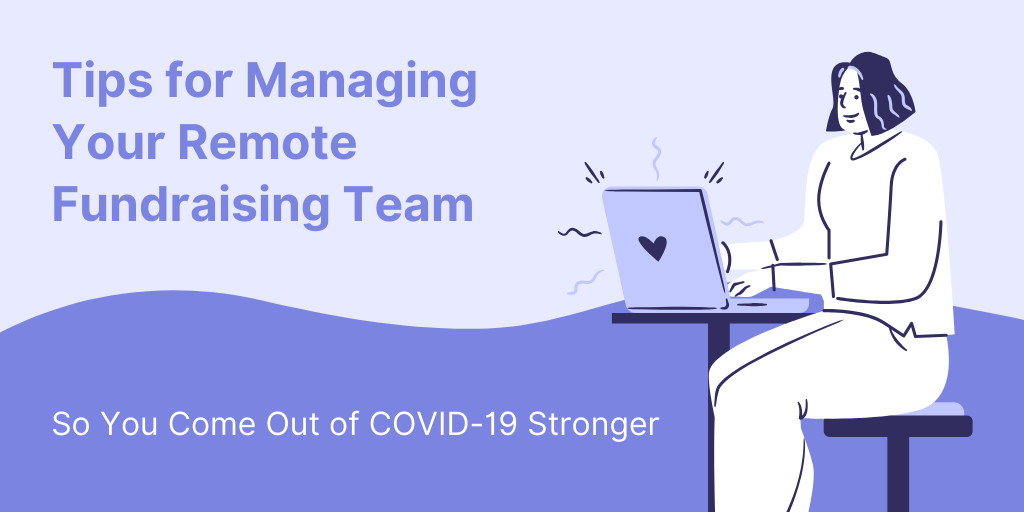|
If you read this blog regularly, you know I’m a can-do kind of gal. I choose to view obstacles as challenges and opportunities. I practice self-care. I watch my mindset. But the truth is that I MUST do those things. My natural tendency is to be pessimistic, low energy, depressive, and anxious. I fight against that actively. And let me tell you it can be exhausting. It can result in burnout and when that happens even self-care sounds too hard and like it’s just too much. So, friends, how do we keep ourselves from that point and what can we do when we get there. To avoid burnout, we need to protect our energy. That means we must: Take your vacation daysYes, I realize you are already at home. But being able to throw in a load of laundry in between meetings isn’t the same as taking a week to do whatever you want or need to do that isn’t work-related. Take those vacation days to recover and rejuvenate. Your work will benefit from it as much as you will. Get good sleep (quality and quantity)I love my Fitbit. Not only does it help me monitor my activity, but it monitors my rest. It gives my sleep quantity (hours and minutes) but also sleep quality, using a sleep score. It’s cool and helps me to contextualize my energy levels on a given day. Limit meetingsWe all know it, but science also proves that Zoom meetings drain your energy. I recommend at least one day per week without any meetings (for productivity) but also recommend that fundraisers do a “week on” and “week off” cycle for donor meetings. Use the “off” weeks to get visits for the upcoming “on” weeks, conduct follow-up on previous meetings, and rest and rejuvenate yourself. Do what must be done and walk awayRemember none of this is normal, but it’s likely to persist. We need to learn to pace ourselves. If you don’t feel good, ask yourself: “What MUST get done today?” Do that and walk away. Do other positive things for yourself to nurture your energy. If you do this with discernment, your motivation will return more quickly than if you just push through the negative feelings. I’m already burnout! How do I climb back out?If we are already in the burnout funk, how can we begin to climb out? And as someone who has battled depression and anxiety, I know you don’t want to hear about diet and exercise and meditation and yoga. Those things are fantastic and good advice and I’m an “on record” advocate for them, but you don’t want to do those things when you’re depressed. Like any good chicken/egg argument, how do we start to feel better so we feel well enough to do the things we know will make us feel better? Wallow (feel those feelings)If you’re depressed, admit it to yourself without judgement. If you are burnout, sit with that feeling and let is pass through you. Allow yourself to wallow a bit. Watch a series on Netflix that you’ve watched 5 times before. Buy that Ben and Jerry’s and savor it. Take an extra nap and don’t feel bad about it even one little bit. Extrovert woesI am a real extrovert. Extroverts get their energy from interactions with others. I’m finding that if I don’t get enough outside interaction, I get more and more down. Meetings help but they are on Zoom, which can drain energy (a real conundrum). I find messaging friends helps. Phone calls can help. Even doing something small like going to the grocery stores or picking up take-out (safely, of course) can help me get that human interaction that I thrive on. Get some spaceSeeing the same house and the same yard every day, hearing the same kids, the same frogs in the same creek gets old. One thing that helps me is to go for a long drive with an audio-book. I get some quiet and a change of scenery safely. Plus, gas is super cheap right now. We can also change up our personal space to be different. My husband fixed up an old table and made me a spot on our back patio to sip my morning tea and watch the garden. Take those vacation days (a reprise)Yes, I know I already listed this. But it’s so important and in the non-profit world, we feel tremendous pressure to perform. Getting some temporary relief from this pressure is essential, especially if we are burnt-out. Social media and news detoxThe state of the world is overwhelmingly. While it’s important to remain connected to friends and stay abreast of the news, it’s equally important to not let yourself slip into constant scrolling. I recently noticed myself doing this too much (mostly with Facebook). So, I removed the app from my phone, so I must go to my laptop if I want to check it, which puts some boundaries around my social media usage. Go for a short walkThis is the simplest way to get a change of scenery. Even just a 5-10-minute walk around the block can improve your mood. You can listen to music (another mood-booster), listen for the birds, or just talk with a friend. Watch your self-talkThis is so very important. If you’re feeling down and then you pile on negativity on top of that, you must stop. For instance, you feel terrible, so you don’t work out or you get behind at work, so you think, “Snap out of it. What the hell is wrong with you? You’re being lazy and going to get so far behind. How are you going to catch up?” This is so toxic, and we often do it unconsciously. I’ve found consciously practicing loving-kindness whenever I catch these thoughts is a healthy practice to counter this. Watch the thoughts and say “May I be filled with loving-kindness. May I be well. May I be peaceful and at ease.” Whatever you feel, feel it without judgement and with compassion. Do something small and make deals with yourselfThis is where we can really grow. Fundraisers love negotiation. Start to make deals with yourself. If I take a small walk, I can take a nap. If I do a gentle yoga practice for 10 minutes, I can watch another episode of my favorite show. Slowly, steadily, taking small healthy actions and “rewarding” yourself with something that sounds comforting right now will pay huge dividends. Over time, as your small healthy actions improve your mood and motivation, you’ll be able to do more of that positive self-care and suddenly you are in an upward cycle and not a downward spiral. Have you had any trouble with burn out during this crisis? What did you do to turn it around? Did any of these suggestions resonate with you? Let me know in the comments. Comments and questions are, as always, welcomed and encouraged! Cheers! Jessica PS - If you liked this post, you might also like these:
PPS - I hope you’ll continue the conversation by subscribing to Real Deal Fundraising. When you subscribe, you’ll get my FUNdraising Friday emails, which includes the best articles on fundraising, productivity and cool stuff every week. The whole thing is weekly curated awesomeness as well as freebies like webinars, instructional videos, and whatever else I can put together to be helpful to you! I don't know about you, but I feel busier than ever, despite the fact that I never leave home! With everyone being roughly two months into work-from-home, you probably have your office area set-up and if you have children, they are probably wrapping up formal schoolwork. Now, you’re finally able to turn your attention back to optimizing the situation. What can you do to make work-from-home work for you? Last week, I posted a collection of tips for managing your remote team. This week, I want to share what I’ve learned about managing myself and my time while being at home all day. Forget about the 9 to 5Everything you think you know about work – throw it out. You do not have to be sitting in front of your computer staring at your email from 9 to 5 to be a “good” employee. In fact, that mentality makes you less productive and more miserable. Have your goals for the day, week, month, and project and move towards them every day. Don’t focus on time. Focus on progress to goal. This is a crucial shift if you want to work from home without having a meltdown or having work take over your home life. Keep at least one day per week without meetingsIf I have meetings every single day of the week, I cannot do important projects that require thought-work or intensive writing. Meetings break up the day and pull your focus away from what you need to produce. They are necessary, especially in a remote arrangement, for facilitating teamwork and communication. But they must be kept in their place. I recommend one day every week without meetings to give you time to make progress on important projects. Also, I recommend doing donor meetings one week “on” and one week “off” when working from home. The “off” weeks give you time to recover as well as time to set up the next round of meetings. Which day will you choose to be your meeting-free day of the work week? No, you don’t have to dress upI see so many recommendations saying something like, “Get up and get dressed every day, as if you are going to work, to maintain a sense of normalcy.” If that works for you, more power to you. Cope however you can. But – to my mind – one of the benefits of working at home is being able to be comfortable and I’m not about to give that up just to trick myself with a false sense of normalcy. Most days I wear a tank top and yoga pants. When I have meetings, I throw on a cardigan, pull up my hair, and maybe put on some earrings. I relish my comfort and it makes me more productive. If getting dressed works for you, great! But, if you’d rather be cozy, I give you full permission to embrace that aspect of remote work. Eat the Frog“Eat the Frog!” means do the thing you are dreading having to do, FIRST. (If you had to eat a frog on a Tuesday, when would you do it? You’d do it first so you wouldn’t spend the whole day worrying about it.) Do it first and then it’s over with. If you have a tedious or boring or time-consuming task, just get it done. Rip off the Band-Aid and then it’s over and you’ve freed up valuable head-space for the other tasks in your list. BatchingGot a pile of thank you notes to write? Do them all in one two-hour period. It’s been proven that people who sit down to pay their bills only once or twice per month are happier with their finances than those that pay each individual bill as it comes in. Beyond the psychological benefits, it’s efficient. I also do it with laundry. I wash giant batches on the weekend and fold it all in one big push. Doing repetitive tasks all together is time-saving and more importantly, it saves MENTAL energy. You aren’t switching gears back and forth all the time. Make a list of 3-4 work tasks and 3-4 personal tasks that you could try batching. Pomodoro MethodMaybe there’s an “Eat the Frog” kind of task that you don’t like to do but it’s also recurring or repetitive? How to handle that? I like the Pomodoro Technique for this. This is a time management technique in which you decide how long you want to work on a task, set a timer, and then once you do that allotment of time, you get a break. For instance, maybe you have a tedious data clean-up project that you’ve been procrastinating on? Tell yourself you are going to work on it for 25 minutes and then take a 5-minute break. Take the break and then repeat at whatever intervals make sense for your deadline. (If the break is not long enough to motivate you or the time on the task isn’t enough to show real progress, tweak the times until you feel motivation and purpose.) I use this for housework: clean something, anything for 15 minutes and then I can stop. This technique helps you overcome the biggest hurdle: STARTING. I find the 15-minute requirement gets me off my booty and cleaning. Once I’m up, I generally will finish the task and work beyond the 15 minutes. Some days, I will quit after the allotted time. And that’s ok. I know tomorrow I’ll do it again. What work task could you use this technique on this week? Give it a try and let me know how it goes. Have a plan for your mealsFood can become frustrating when working from home. When you go to an office, you either have packed a lunch or you are going out to a restaurant to grab something. But at home, you will either must have something ready or you’ll end up cooking all day. Other options include being too hungry to work or eating junk food snacks which will catch up with you in the long run. And don’t get me started on how much it sucks to have a tight schedule of Zoom meetings and nothing ready to eat in between. I tend to do some protein shakes in the morning and cook big meals on Sundays and eat the leftovers for other meals during the week. Could you use your crockpot or insta-pot to have something ready to go while also producing leftover? Find a few recipes to try out next week. Self-careI’m a huge advocate for self-care, especially when you work-from-home. A Zen proverb says, “You should sit in meditation for 20 minutes a day. Unless you are very busy, then sit in meditation for an hour.” It’s true that you are more productive when you care for yourself well and do the things you know you should do to be your best self. I define discipline as keeping your promises to yourself. One of the benefits of working from your house is that if you need a meditation break or a yoga break or an exercise break, there’s no one to see you doing it. My office doubles as a home yoga studio and meditation space. Prioritize self-care and it will make you more productive. Sharpen your sawDo things that make you more motivated and productive at work. For me, researching, writing about, and teaching fundraising techniques keeps me at my best at my day job. Learn as much as you can about emerging digital opportunities and explore online learning options, which are exploding everywhere right now. Managing your own mindset and motivation level will pay huge dividends. Have you tried any of these techniques before – in or out of the office? What has worked for you that perhaps I didn’t cover here? Let me know in the comments below. Comments and questions are, as always, welcomed and encouraged! Cheers! Jessica PS - If you liked this post, you might also like these:
PPS - I hope you’ll continue the conversation by subscribing to Real Deal Fundraising. When you subscribe, you’ll get my FUNdraising Friday emails, which includes the best articles on fundraising, productivity and cool stuff every week. The whole thing is weekly curated awesomeness as well as freebies like webinars, instructional videos, and whatever else I can put together to be helpful to you! If you’re a regular reader of Real Deal Fundraising you know that I’ve been working from home for almost five years and fundraising for a school in California. (I live in Mississippi.) I rarely talk about the fact that I manage a team remotely too. I have an annual giving coordinator who is also the communications manager for the school and an advancement associate who helps us manage the data and process gifts. She’s half-time for now and lives here in Mississippi. In 5 years, I’ve learned a few things about how managing a remote team is different than managing an office full of folks. As offices adjust to work-from-home as a new reality, here are some suggestions for managing your newly remote team: TrustThe entire work-from-home model is all about trust. Perhaps that’s why WFH folks are 87% more likely to love their jobs than office dwellers, according to research by Leadership IQ. Your old worn-out 20th century leadership models that are based on command, control, activity metrics, pay-for-time, and micro-managing are not going to survive this crisis. Go ahead and make the change now and start trusting your people. The 20th century also was a time that believed in work-life separation, that world lingers with us in the high number of people who are freaked out when their kids interrupt meetings. The work-from-home model acknowledges that people are people and their life is fully integrated and influences their work. Acknowledgement of this increases respect between employer and employer. ResourcesLeveraging technology is so crucial right now. You new superior hardware, internet connections, communications software, database software, and perhaps other systems. Lobby to re-purpose budget resources for this purpose and you will endear yourself to your colleagues. Clear Goals and PlansWhen you aren’t with folks in person, you must have very clear goals and plans. Knowing when things must be done is crucial but the deadlines must be meaningful in order to inspire action. This isn’t about having more meetings on Zoom. It’s about having a crystal clear idea of what you need accomplished when you go into those meetings. Write out a plan or use a project management software to keep things on track. Focus on OutcomesDo not expect that your team will be sitting in front of their computers for exactly 8 hours every day. When working from home, work happens around kids, laundry, cooking, and many other things. I find that texting to check up on a project is the best way to reach out. If things are not urgent, send an email. I also use email to send detailed plans. But with my team, texting is the best medium for rapid communication. Focus on goals and milestones as you progress to goals. Don’t wring your hands over activity metrics and whether people are working “enough”. If goals are being achieved, they are working enough. Don’t feel you must find tasks to fill in the “gaps”. This is not the way to inspire loyalty. How you manage your employees during this crisis will determine whether they want to work for you long term. This seismic social change will have long-term consequences, including, I believe, more people wanting to work from home permanently. Why not view this as a opportunity to put some new management skills in your toolkit? Comments and questions are, as always, welcomed and encouraged! Cheers! PS - If you liked this post, you might also like these: PS - If you liked this post, you might also like these:
PPS - There's still time left to join my new course, All-Star Annual Giving. The course begins on Monday, May 18th! All-Star Annual Giving is a fully online 12-week course with 9 modules covering all areas of annual giving strategy and execution. If you want to roll into the semester with a fully-fledged plan to raise more money than you've ever raised before in your annual giving programs, you need to be in this course. The legendary fundraiser, Jerold “Jerry” Panas, passed away in July 2018. I feel so tremendously lucky that I got to hear him speak in 2014 at a statewide Association of Fundraising Professionals event here in Mississippi. He had a salt-of-the-earth, no-nonsense style that was very attractive and inspirational. His books are wonders of pith and restraint. My favorite is “Asking: a 59-Minute Guide to Everything Board Members, Volunteers, and Staff Must Know to Secure the Gift”. It’s a 108-page crash course in fundraising, easy to read, and highly quotable. As the fundraising world adjusts to the new reality of the pandemic, I asked myself what Jerry would be advising us to do right now. Wondering how he might approach it, I flipped through my much highlighted and underlined copy of "Asking" to find out. I felt I should remind all of us of these timeless truths from a master of our profession. Here are 8 amazing quotes about the practice of fundraising that I found highly relevant to our current situation: “What I’ve discovered in all my years of fundraising is that it almost doesn’t matter how you ask . . . what is important is that you ask. Just do it” (p. 11)I’ve already answered the question of “To Ask or Not to Ask?” in this post. I love that Jerry agrees with me. Fundraisers are not hired to raise money. We are hired to ask for money. So, we must find effective ways to do that and not let our discomfort or ego get in the way. “Keep in mind that men and women don’t want to give money away. They want to invest in great causes, in bold and exciting dreams.” (p. 12)Don’t Jerry’s quotes make you want to whoop and shout “Amen!”? Fundraisers can only go so far if there is not a bold and inspiring vision coming from the very top visionary leadership of the organization. Create something folks want to invest in. Right now, that may mean emphasizing how important your mission still is, despite coronavirus. Or you may need to switch to relief fundraising to help those you serve directly. “Integrity is the mightiest weapon in the fundraiser’s arsenal – more important than the campaign literature or anything that is said. Its power is explosive. Integrity alone is no assurance of getting the gift. But without it, you can’t even begin the journey.” (p. 20)I’ve written about integrity as an essential quality for a fundraiser last week and back in 2017. Find your deep connection to the mission of your organization or, by golly, go work somewhere else. That belief in mission will radiate realness from you and your donors will feel it and respond to it. “Work hard at putting people completely at ease and making them feel important.” (p. 48)This is the essence of quality cultivation conversation in one brief sentence. (Didn’t I tell you Jerry was pithy?) This advice can apply as easily to Zoom and telephone conversations as it applies to in-person visits. “People don’t care how much you know until the know how much you care.” 55Lead with care for people. Start with inquiring about the health and welfare of your donors and their family. Then move to expressing your care and concern for those your organization serves. If that caring is communicated effectively and with integrity, you are only millimeters away from a gift. “Lucky you. You are a fundraiser. Some shy away. Some are afraid. Some say they don’t like it. You know better. You are, in your own special way, helping to change a corner of the world.” (p. 77)We must remember the worthiness of fundraising as an endeavor if we are to survive and thrive in the non-profit world during this difficult time. Connect to that broader mission and be proud of it. I wrote a similar post here. “Giving up is the ultimate tragedy. Failure is not the crime – low aspirations are.” (p. 79)When I think about all the challenges that history has brought to those going before us (wars, disease, genocides, massive social change, etc.), I connect to the fact that we must endure. The first organized capital campaign (for the YMCA) happened during World War I and the Spanish Flu Pandemic. Harvard University embarked on their first endowment campaign in 1919, just after those two pivotal events. The American Red Cross had their first successful multi-million campaign during World War II. We can do this. “In all you do, act as if it’s impossible to fail.” (p. 88)Amen, Jerry! Our mindset largely determines how far we can go. What I see right now is a firmly 20th century mindset is dying, and organizations are being forced into a fully 21st century mindset. Organizations who have a scarcity mindset are already cutting revenue-generating staff at the mere anticipation of challenges. Institutions that have truly made the switch to a 21st century, abundance-oriented mindset will find a way to function in this new reality, as Jerry says, “as if it’s impossible to fail.” What's your take? Do you agree with Jerry or feel his lessons aren't applicable to the current moment? What's your favorite book of his? Comments and questions are, as always, welcomed and encouraged! Cheers, PS - If you liked this post, you might also like these: PS - If you liked this post, you might also like these:
PPS - There's only 12 Days left to join my new course, All-Star Annual Giving. Registration is open! All-Star Annual Giving is a fully online 12-week course with 9 modules covering all areas of annual giving strategy and execution. If you want to roll into the semester with a fully-fledged plan to raise more money than you've ever raised before in your annual giving programs, you need to be in this course. |
Jessica Cloud, CFREI've been called the Tasmanian Devil of fundraising and I'm here to talk shop with you. Archives
June 2024
Categories
All
|






 RSS Feed
RSS Feed
